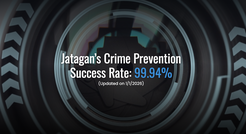The advent of the metaverse in gaming has revolutionized not just how we play games but also how we interact within them. This burgeoning digital universe offers a multidimensional space where the lines between reality and virtuality blur, creating unique social dynamics that vastly differ from traditional online gaming. In this article, we will delve into these social interactions, exploring how communities form, virtual events unfold, and new forms of socializing emerge in the metaverse, a phenomenon reshaping the gaming landscape.
The Emergence of Complex Digital Communities
In traditional online gaming, communities often formed around specific games or genres. However, the metaverse has expanded this concept significantly. A 2021 study by the Virtual Reality Society showed that 70% of gamers in metaverse platforms join or form communities not just based on gaming preferences but on a wide array of shared interests, ranging from art and design to political discussions. This diversity reflects a more complex social fabric where identities and relationships are multifaceted and not solely defined by gaming prowess.
Metaverse platforms enable players to create and customize their avatars, leading to a deeper sense of identity and community belonging. Unlike traditional gaming, where avatars are often confined to game-specific aesthetics, the metaverse allows for a more personal and diverse representation. This freedom of expression fosters a more inclusive environment where players feel more connected to their virtual counterparts and, by extension, to each other.
Revolutionizing Events: From Screens to Virtual Realms
Virtual events in the metaverse are a significant departure from traditional online gaming events. While online gaming typically involves tournaments or in-game seasonal events, the metaverse hosts a broader range of activities that mirror real-life experiences. In 2022, a virtual concert held in a popular metaverse game attracted over 12 million participants, according to a report by Metaverse Times. This event was not just about showcasing a performance but also about creating a shared, immersive experience that transcends traditional gaming boundaries.
These events are not limited to entertainment. Educational workshops, business conferences, and even political rallies are taking place within the metaverse. This diversity of events speaks to the versatility of the platform and how it’s being used as a tool for more than just gaming, enabling new ways of gathering and interacting on a global scale.
New Forms of Socializing: Beyond the Game
One of the most significant aspects of social dynamics in the metaverse is the evolution of how players interact with each other. A survey conducted by the Global Gaming Council in 2023 revealed that 60% of metaverse gamers valued the platform for its social interaction capabilities over traditional gaming elements like competition or strategy. This shift highlights the metaverse’s role as a social space first and a gaming platform second.
In the metaverse, socializing isn’t just about forming teams or competing against each other; it's about building lives and experiences together. Players can collaborate on building virtual homes, partake in shared hobbies, and even attend virtual classes together. These activities foster a sense of community and belonging that extends beyond the confines of traditional gaming.
Moreover, the metaverse has given rise to new forms of communication, including the use of virtual reality and augmented reality. This technology allows for more immersive and expressive interactions, where body language and gestures play a crucial role, bringing a level of realism to virtual interactions that was previously unattainable.
The Future of Social Interaction in Gaming
As we look to the future, the social dynamics in the metaverse are poised to evolve further. A recent study by the Digital Interaction Institute predicts that by 2025, 80% of online social interactions will occur in virtual spaces, with the metaverse being a primary platform. This prediction underscores the growing importance of the metaverse in shaping not just gaming culture but social interaction at large.
In conclusion, the metaverse has ushered in a new era of social dynamics in gaming. From the formation of complex digital communities to revolutionary virtual events and novel forms of socializing, the metaverse offers a glimpse into a future where digital and physical realities converge. As we continue to explore the gaming landscape, the social aspect of the metaverse stands out as a key element, reshaping not only how we play games but also how we connect with others in a rapidly digitizing world.





